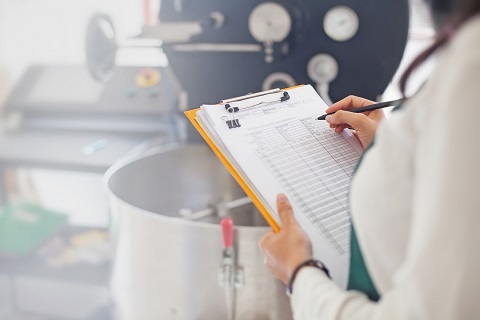Restaurant and Retail Food Inspections
Inspections focus on food safety practices and determining compliance with the health and safety code requirements for safe food temperatures, safe food handling, employee hygiene, an adequate supply of water and hot water, and the business is maintained clean and free of vermin.
You May Be Interested In...
Greeting and Information Verification
Health inspectors will:
- Introduce himself/herself and provide proper identification (i.e., Public Health I.D. Card or a driver's license and business card)
- State the purpose of the visit
- Obtain consent to enter non-public areas (e.g., kitchen, processing area, or storage areas). The restaurant operator can deny or delay entry into food facility, then the health inspector will schedule a Compliance Review with the operator
- Verify the food facility ownership
- Verify the operator's email address
- Verify the current Public Health Permit/License (PHP/L) with the Person in Charge (PIC) against the information in our database. If a change of ownership has occurred, we will proceed to the Public Health Permit/License Issuance process
- Wash their hands prior to commencing the inspection
Our health inspectors are polite, professional, and respectful of the facility's business throughout the inspection process

Our health inspector will proceed directly to the area of the food facility with the highest risk operations (food preparation area) and conduct a visual overview of the area. The inspector shall assess whether any Major Critical Risk Factor violations requiring immediate corrective action are present and address them immediately (e.g., overflowing sewage).
Our inspector will proceed throughout the facility examining:
- Food handling practices
- Food preparation practices
- Food storage practices
- Employee practices
- Cleaning and sanitizing procedures
- Food employee's ability to demonstrate knowledge about their assigned tasks, facility maintenance, etc
Refer to Inspection Requirements for Retail Food Facilities.
Health Inspectors will:
- Clean and sanitize the probe thermometer prior to taking any food temperatures
- Determine if the facility is using HACCP/ROP/TPHC. If so, review written procedures for viability of HACCP/ROP/TPHC and confirm compliance
- Verify the facility meets the requirements for a Certified Food Protection Manager, and food handler cards for food employees
- Intervene to prevent service of food which has been contaminated through poor employee hygiene, contaminated equipment or utensils, or vermin
- Provide training to employees and the Person In Charge for any critical violations observed
- Verify the facility complies with posting requirements (such as Grade or Score Card, Public Notification Card, required signs) and disclosure requirements
- Verify the last inspection report is available upon request
- Verify the presence of a current soft-serve license, if applicable
Health Inspectors will:
- Complete the Food Official Inspection Report (FOIR)
- Schedule a re-inspection date if applicable. See section below on Compliance Dates about determining the date.
- Conduct a closing conference with the Person In Charge to review inspection findings. The inspector shall provide the Person In Charge an opportunity to ask questions
- Post or update the grade or score card according to the adopted ordinance; refer to Posting Letter Grade/Score Cards and Public Notifications or Posting Notice of Closure Signs
- Distribute brochures and informational pamphlets, as applicable
-
Email a copy of the
Food Official Inspection Report (FOIR)
to owner/PIC.
Food Official Inspection Report (FOIR)
shall be printed and provided to owner/PIC the same day of inspection when:
- Requested by owner/PIC
- Inspection results in grade less than an "A"
- Reinspection is less than 48 hours (i.e. hot water temperature violation)
- permit suspension (i.e., imminent health hazard or nonpayment of Public Health Permit/License)
Compliance Dates
Compliance dates vary depending on the following situations:
- Type of violations observed at the time
- Inspection and violation history of the facility
A Major Critical Risk Factor that is not corrected by the end of the inspection shall result in suspension of the Public Health Permit/License see Public Health Permit/License Suspension Due to an Imminent Health Hazard. The health inspector shall use the following guidelines to determine compliance dates.
| VIOLATIONS | COMPLIANCE DATES |
|---|---|
| Major Critical Risk Factors | Corrective action required prior to end of inspection. Inspector shall schedule a reinspection within 14 days to determine ongoing compliance. |
| Repeat Minor Critical Risk Factors and Repeat Good Retail Practices (GRP) | Up to 14 calendar days; however, some violations may require corrective action prior to the end of the inspection. |
| Non-Repeat Minor Critical Risk Factors and GRP | Next routine inspection or 14-30 calendar days depending on urgency of violations. |
To learn more about Restaurant and Food Retail Inspection, please refer to our Retail Food Inspection Guide.




